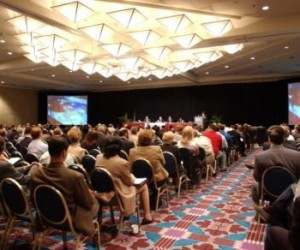Convergence is rapidly leading to a cross-pollination of industry expertise as organisations start to acknowledge how one business sector impacts another. In the world of chemicals and materials, for example, convergence is happening with the advent of “green”, where chemicals are being driven to be more environmentally friendly and to enhance the concept of being energy smart.
There is a strong element of convergence within the energy and environmental sector when seen within the context of other verticals, such as information and communication technologies (ICT), chemicals and automotive. During the 5th annual GIL congress, Frost & Sullivan will present some of the key trends influencing the African landscape. These New Mega Trends include: Smart Cities, New Business Models, Energy Efficiency, Water Stress, Smart Chemicals and various others.
“Smart chemicals and materials are being developed to encourage energy efficiency in the use of insulation materials and paints, for example, that reduce the need for heating and cooling in buildings (SMART buildings),” says Frost & Sullivan Business Unit Leader for Energy and Environment, Aurelia van Eeden. “In the automotive industry, smart components reduce the weight and thus fuel consumption on the road and there is an incorporation of more natural materials into cars which is leading adhesives to evolve and become less harmful to the environment.”
Additionally, fuels are increasingly being developed from biological sources, such as the development of jet fuel for South African Airways (SAA) from Solaris tobacco, and the use of landfill waste to generate gas power in municipal areas. Water management is also becoming more modular and is being combined with renewable energy sources to remove water treatment from the power grid; thus becoming more cost effective and sustainable.
“We are seeing a number of companies already adapting their business models in Africa to address the changing business landscape, including the Energy Intensive User Group in South Africa, consisting of the large mining houses like BHP Biliton, ArcelorMittal, and others like Transnet and Sasol,” notes Van Eeden. “It is vital for companies operating in the African commercial environment to understand the importance of current and future trends, as well as areas of convergence.”
There are fast-changing business models within the dynamic areas of ICT, energy and environment, and healthcare and chemicals. This subsequently provides commercial opportunities and risks that need to be addressed. Companies in Africa that are able to adapt to the changing environment stand to increase their chances of being sustainable over the medium to longer term.
The GIL 2015: Africa congress this year will present current and future trends across various industry sectors, including Smart Cities, Connected Living, Cleaner Energy, and Water and Waste, to name a few. The congress will also host an executive CEO panel debate which will discuss convergence in Africa and a number of issues faced by CEOs and their management teams today.
Frost & Sullivan's Global GIL Community continues to be the industry's only resource that supports CEOs and their management teams in critical decision-making, offering tools that help industry leaders in achieving the three essential objectives of Growth, Innovation and Leadership. GIL 2015: Africa will provide CEOs and their growth teams an opportunity not just to attend GIL, but to actually experience it.
Schedule:
GIL 2015: Africa
The Table Bay Hotel, Cape Town, South Africa
20 August, 2015
Contact: Samantha James
Corporate Communications – Africa
P: +27 21 680 3574
F: +27 21 680 3296
E: samantha.james@frost.com
@FrostSullivanSA










